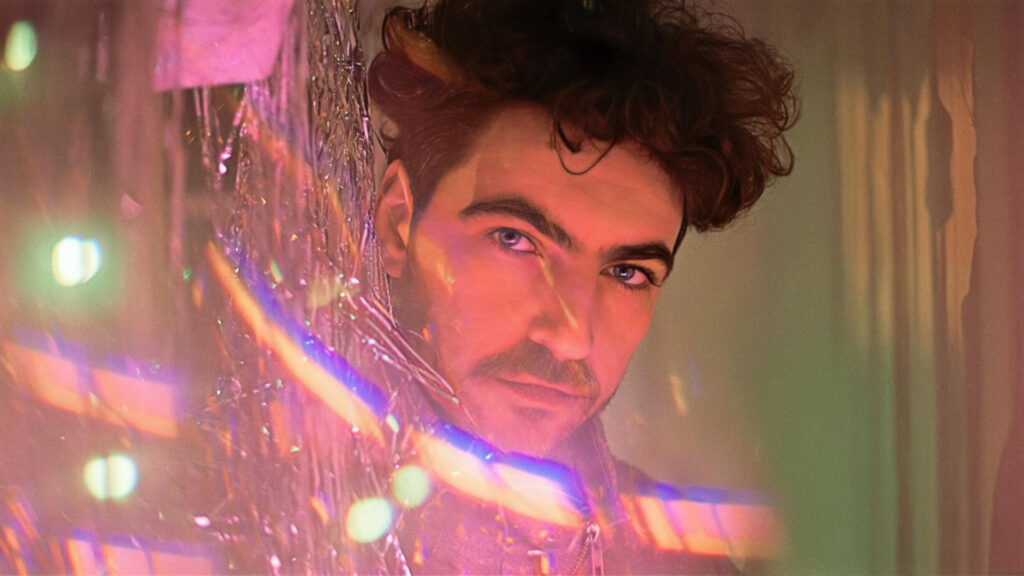Sweden’s indie-rock star Linn Koch-Emmery uses her voice to advocate for mental health awareness in her latest album, ‘Borderline Iconic.’ Her songwriting offers a palette of raw experiences and introspection, all with a contemporary indie flair. Linn is here today to talk about her latest release, her mental health journey, and her path as an artist.
‘Borderline Iconic’ has been described as a deeply personal album. Can you tell us about the inspiration behind this project and how your own experiences shaped its creation?
My music is quite autobiographical, so it’s always been personal, but this time, I think the stuff I went through in life and had on my mind shone through the music a bit more. I never plan on the themes for the songs; I’m not that well figured out. It really just reflected what I thought and worried about at the time.
Your new album explores a variety of emotions and touches on your journey with mental health. How did your diagnosis and experiences with bipolar disorder and ADHD influence the songwriting and themes of ‘Borderline Iconic’?
I guess I came to a point in my life where I started to ask myself more questions about myself and the way things were. I was fed up with myself, it felt like I ended up in the same place over and over again. I had been taking meds for stuff since a young age and got told by doctors that my anxiety might fade with age if I was lucky. I had adopted a view of myself as something constant, a flawed person with issues that were set in stone and that would follow me until the day I die. There’s a lot of grief and anger that comes when you start to question why no one just dug a bit deeper and asked the child in front of them some questions, instead of prescribing more drugs. The bipolar diagnosis was revised, I didn’t fill the criteria, and today I’m off of antidepressants for the first time since my teenage years. I’m not saying that medication necessarily is a bad thing and that I’ll never find myself there again. I’ve been in therapy for more than a year. It has been eye-opening and hard, but also a very hopeful experience.
You worked with Pete Robertson on this album. What was it like collaborating with him, and how did his influence help you delve deeper into your emotions and mental health in your music?
Pete is such a great human being, as well as an extremely talented musician. I felt safe with him and recognized a lot of myself in him and his love towards art and music, I think that’s why it felt natural and easier to go down that road.
Tracks like ‘Happy’, ‘Ebay Armour’, and ‘No Hands’ were released as singles before the album. How do these songs fit into the overall narrative of ‘Borderline Iconic’?
They are all about ruminating and using your brain to reason what is probably unreasonable and illogical. Not being able to understand a person, a situation or yourself.
The album’s themes of confidence and vulnerability are powerful. Can you share how you balanced these elements in your songwriting, and whether there were any particular challenges you faced in expressing such a range of emotions?
Performing and writing music is one of the times I feel most confident in life. I like myself when I do music. Talking about things I’m ashamed of or dislike about myself without making it a joke is harder. I don’t think I would have been able to be this transparent about things if it wasn’t in the context of my music.
Your performance at The Social in London was highly praised. How did it feel to bring your new music to a live audience, and how did the energy of the crowd impact your performance?
There’s always a certain nerve in performing new songs live. Like walking in new shoes for the first time. I had a lot of friends and some family there, which made it feel special.
Your music has received acclaim from publications like Rolling Stone UK, Wonderland, and Atwood Magazine. How do these accolades influence your career, and what do they mean to you personally?
I appreciate it, and I’m proud and happy of what I do, getting external validation is, of course, a boost, but it usually feels amazing for two minutes, and then you’re on to the next thing. It sounds like a total cliché here, but what I carry with me a bit more are the stories and feelings people share with me in my music. How it makes them feel. That still blows my mind every time and gives a lot of purpose.
Looking back at your journey from your debut EP ‘Waves’ to now, how do you feel you have evolved as an artist, and what can fans expect from you in the future after ‘Borderline Iconic’?
I think my music has evolved alongside me as a person. I’m growing into myself a bit more each year, and each record. I’m a bit more relaxed in my expression now maybe, I know how I sound, and it’s quite hard to change that, harder than I thought. I can rest on that. Now I’m just waiting for the next personal crisis to hit, so I can move on to the next (just kidding), but probably something like that.
Cover photo by Jonas Carmhagen
Next story


